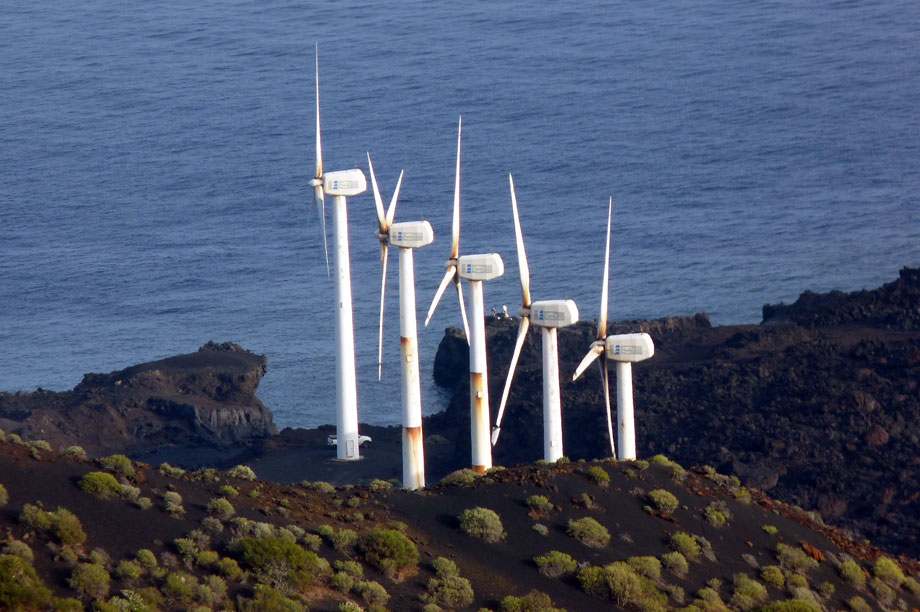The German company's move also offers hope of at least some activity to Spain's otherwise paralysed market.
Enercon is confident exemption will be granted. "We're banking on it," Eric Breckwoldt, the firm's sales manager for Spain, told “uåX˜äŠÊ˜·³Ç after inaugurating the new office in December. He "fully expects" the freeze to be lifted on Canaries projects in 2013.
At the end of 2011, Enercon's share of Spain's cumulative wind market stood at just 2.2% (485MW). But the company has much at stake in the Canaries. In 2009, the archipelago's regional government allocated its entire 449MW call to tender to developers committed to Enercon technology.
According to Breckwoldt, the choice of Enercon machines was due to the limitations of land space on the islands and the high points given to the rotor diameter-turbine output ratio. Currently the region has just 146MW of wind online; barely up on the 130MW in operation in 2008.
While developers of the latest allocation were lining up building permits, the national renewables moratorium struck as part of the central government's austerity measures that came into force on 1 January.
However, in mid-2012, the central government agreed to set up a working committee to study exemption from the moratorium for the Canaries. This was in response to pressure from national wind association AEE and the Canaries regional government, which produced overwhelming evidence that wind power was cheaper in the Canaries than conventional power.
Renewables cheaper
Most important was a study from the University of Las Palmas de Gran Canaria, which stated a 65% renewables penetration in the electricity mix across the archipelago, compared with less than 5% at present, would provide the optimum balance between price and supply security. "A wind megawatt-hour costs EUR89," said regional industry minister Margarita Ramos. "For conventional power it costs EUR165," she added.
The indications are positive. In early January the Spanish government approved the tariff for a 5MW project on El Hierro, developed by utility Enel-Endesa and likely to use Enercon turbines. The project is tied into a 11MW hybrid hydro-project that will make the island 100% renewable.
Regional vice industry minister Francisca Luengo has promised to declare Canary wind a "special public interest"; a legal category permitting projects to go ahead despite the moratorium. But even if that happens, the projects would still not be entitled to any feed-in tariff, as that is the competence of the national government and frozen by the moratorium, Breckwoldt points out.
Political rivalries between the national conservative People's Party government and the Canaries regional government - a regional coalition with the Spanish Socialist Workers' Party - may have caused delays in lifting the moratorium, Breckwoldt believes. Given Spain's dire financial problems, he remains confident that "economics will force the issue" and expects exemption for the Canaries to be approved early on in 2013.
If renewed build out of wind power in the Canaries has to wait until the national moratorium is lifted, varying sector predictions are that it will have to wait until 2014 at the earliest or even as late as 2017.
Other options
Enercon is finalising connection for 5.7MW of repowering projects in the Canaries approved before the moratorium. As one of Spain's early wind markets, the Canaries are ripe ground for repowering, with a third of its online capacity over ten years old.
Breckwoldt says Enercon has agreements with industries in the Canaries for self-supply wind projects, a trend attracting other turbine makers to the islands. Projects under 10MW do not need central ministry approval. Given the high power prices on the Canaries, large industries are looking for power purchase agreements directly with wind producers, "cheaper than buying from the grid", said Breckwoldt.

.png)

.png)











